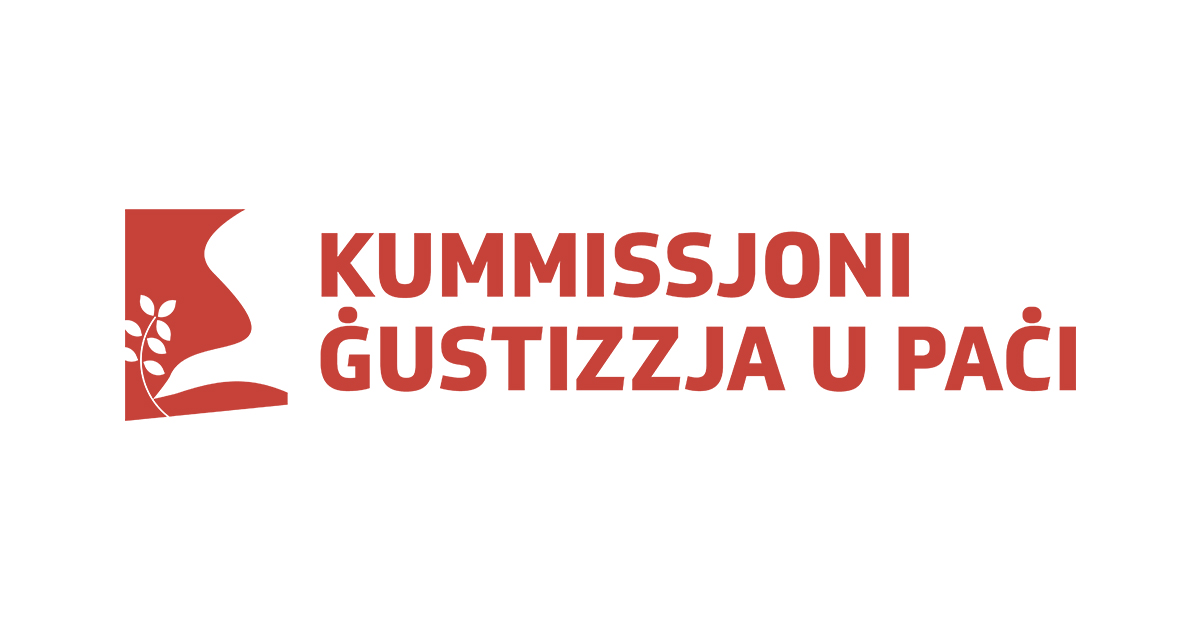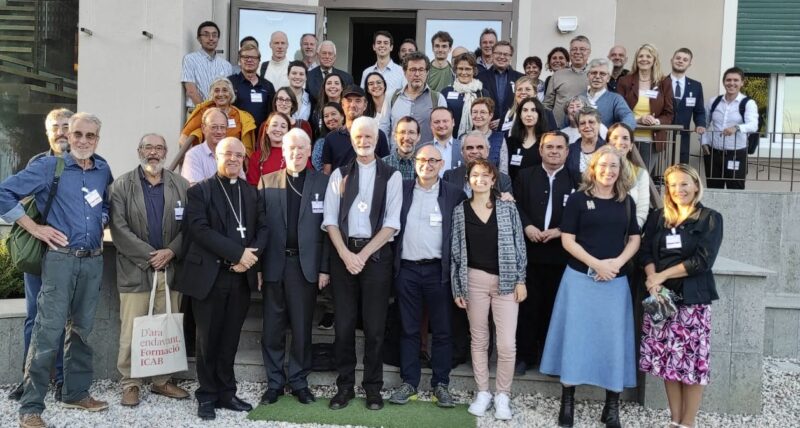Between the 5th and 12th February 2023 the European continental meeting will be held as part of the process of the Synod on Synodality to discuss the document entitled ‘Enlarge the space of your tent’. This document gathers the fruit of the discernment on the syntheses prepared by various Episcopal Conferences around the world.
Mr Stefan Lunte, Secretary General of Justice and Peace Europe (JP Europe) and Mr Daniel Darmanin, President of Justice and Peace Malta and member of the JP Europe Executive Committee will be attending this meeting on behalf of the European network of about thirty national Justice and Peace Commissions which together make up JP Europe. For fifty years it has been JP Europe’s goal to promote the Social Teaching of Church in the European context and we continue to do so in a time of increasing economic, social and ecological challenges. We cherish the Social Teaching of the Church as an inspiring stimulus for faith and as a powerful motor to promote the Common Good at all levels of society.
Since the opening of the Synod in the autumn of 2021 we have been praying as a network for its success and meditating about the best way to contribute. Extracts from the contribution of JP Europe to the synodal process can be found below:
An ecclesial assembly for Europe
In November 2021 the first ecclesial assembly of Latin America and the Caribbean was held in Mexico in view of the forthcoming synod. Following on the general assemblies of the region’s bishops that structured the ecclesial life in the past, this first ecclesial assembly brought together bishops, together with priests, religious and laity in order to discuss the pastoral priorities in the Latin American and Caribbean countries for the coming years. We consider this first ecclesial assembly as a model and a prophetic gathering, which also holds a message for the Church in Europe.
Currently, the Church in Europe is experiencing a profound crisis which concerns all strands of ecclesial life. The revelations on sexual abuse and the abuse of power in ecclesial structures have been its most saddening and shocking expression. Bishops’ conferences and their services in Europe try to do justice to victims and to deal with numerous scandals. They have chosen different paths which are adapted to their respective cultural environment. However, the crisis of abuse has unleashed a crisis of faith in Europe so deep, that it cannot be dealt with at the national level alone. Nor can it be dealt by bishops alone. Participation is the key.
We believe that an ecclesial assembly, called to foster mutual co-operation and understanding in a shared missionary response by the Church in Europe, called to re-awaken faith in our contemporary European cultural and societal settings, would be a gift of the Holy Spirit. Such an assembly would follow the way of synodality.
To date the Church in Europe has not held general continental assemblies of the bishops comparable to those organized in the past by CELAM. However, for the organization of such an assembly we can draw on the rich experiences of three ecumenical assemblies of Basel, Graz and Sibiu, in which the CCEE played an important role. Likewise other European events such as, the European Catholic Social Days provide models. We can also draw inspiration from our brothers and sisters in Latin America and the Caribbean.
The synodal path for dialogue with society
Europe, its people and governments, have been able to establish a form of cooperation which is unprecedented in history. The Council of Europe, the European Union and the Organization for Cooperation and Security (OSCE) have been created successively in order to promote democracy and human rights, to further prosperity and social justice and to secure peace and security. These international organization, and especially the European Union, are a unique feature of political cooperation among states in the world. In their uniqueness they have been positively acclaimed by successive Popes.
We think that the time has come to enhance the synodal path also in the dialogue of the Church with these organisations. In particular, the Commission of Bishops’ Conferences in the European Union (COMECE), which brings together bishop delegates of the Bishops’ conferences and episcopates in the EU, has played a major role in the development and continuation of the dialogue with the institutions of the European Union. Over the years it has called upon and integrated into its commissions and working groups the competence, experience and professional skills of women and men throughout Europe. In the future laity and religious could enhance the assembly of COMECE and thus experiment the synodal path at the European level when it comes to dialogue with EU institutions and European society.
In conclusion we sincerely hope that the forthcoming Synod will inspire the Church of Europe to take the path of synodality not only at parish, diocesan and episcopal conference levels, but also at the European level and we strongly support the proposal of the Synod Secretariat to organize continental gatherings. Justice and Peace Europe is willing to contribute and help in this process.
The Executive Committee and national secretaries of Justice and Peace Europe gathered from 13 – 15 May 2022 in Szombathely, Hungary.




